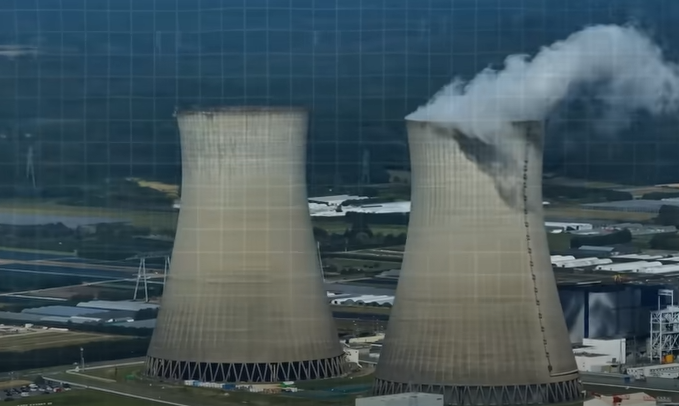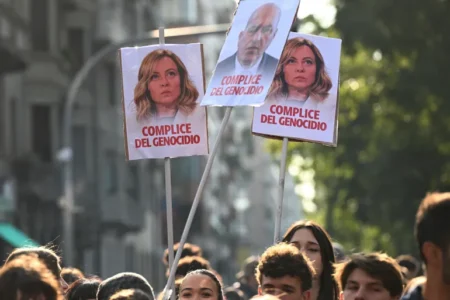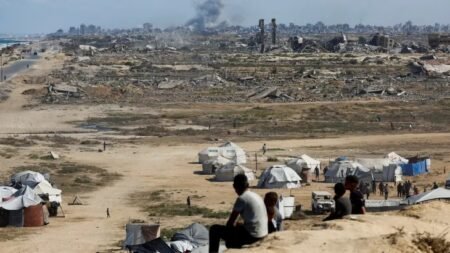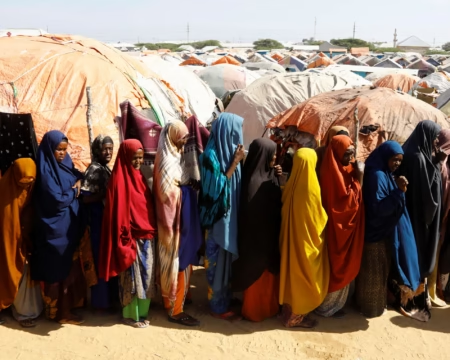The red lights of the Kremlin glow like icy fire over Moscow’s night sky. Inside, President Vladimir Putin sits at his iconic desk. In front of him lie a bundle of maps, one showing a tense red line stretching across the Middle East. It connects Tehran, Gaza, Baghdad, Damascus, and Haifa. Putin stands and looks out the window. His cold smile grows as he speaks: “Do they think Russia will sit back? Time is running out.”
A signal is sent from the Russian Foreign Ministry. It is a small order—but powerful enough to change the world’s geopolitical landscape. This moment signals more than words. It is, some say, the start of war.
Putin’s stance is clear. Russia supports Iran not only politically but also with direct action. Moscow has started building two new nuclear reactors in Bushehr. This decision comes just as Israel and U.S. intelligence agencies fear that Iran is nearing nuclear weapon capabilities. Yet, Putin insists there is no proof Iran seeks nuclear arms. He states: “We and the IAEA have no evidence that Iran wants nuclear weapons.”
Then comes the real warning: “We are not pulling our people out. If Israel or America threatens our safety, the result will be terrible.” Suddenly, the world goes silent.
The Bushehr nuclear site is no longer just an energy project. It is now a symbol of Russia’s strategy and sovereignty. Russian engineers, scientists, and security officers are working there around the clock. Russia has created a secret security ring in Iran, managed by its foreign intelligence service SVR.
While the U.S. and Israel hint at possible strikes, Russia keeps repeating: an attack on this project is an attack on Russia. Even one Russian death could trigger a full military response. Observers from both Israel and the U.S. say Bushehr has now become a “strategic cocktail” that could explode at any moment. A single misstep, one wrong target, could cost thousands of lives.
In Tehran, Russia’s presence isn’t limited to engineering. They are also conducting intelligence operations. Moscow doesn’t want Iran to fail. Pressure on Iran, Russia warns, is pressure on Moscow’s own interests. And no one knows how far those interests reach.
Meanwhile, China is silently watching. Beijing’s diplomats hint that harming Iran will not go unanswered. They believe Israel is making a mistake. As tensions rise, social media lights up. One term trends: “World War III.” A viral video shows a Russian flag flying above the under-construction Bushehr facility. Below it, in Arabic and Russian, are the words: “We are here. We won’t leave.”
Putin’s military advisor has a new message. If there is an attack on the Russian project, Moscow will activate its “Middle East Theater.” This includes operations across Syria, Lebanon, Iraq, and the Persian Gulf. This plan is not just a military strategy. It blends diplomacy, global tactics, and a narrow chance to avoid war.
Yet, gaps remain in the global game. The U.S. continues to arm Ukraine. Tel Aviv keeps its pressure on Tehran. Every action seems part of a larger trap.
One U.S. senator has warned that Putin’s “Order” would not just begin a war—it could shift world history. In the Kremlin, the ticking of clocks now marks the moment when Putin might say: “The order is given.”
From Moscow to Tehran, from Tehran to Beijing, all eyes are on a possible trigger. That trigger could be an Israeli jet firing on Bushehr by mistake. Or a U.S. drone entering a restricted zone. Trade wars, cyberattacks, and shadow operations are already underway. But no one can hide in the shadows anymore. The world’s most powerful nations are now focused on one place: Tehran.
One name appears again and again in global intelligence reports: Ayatollah Ali Khamenei. He is not only Iran’s Supreme Leader. Many believe he is the only person who can stop or spark the coming storm. Sitting in a bunker, with the Quran in front of him, he whispers the Islamic creed. He knows his next decision could decide the fate of not just Iran, but the entire Muslim world—and perhaps the whole planet.
He holds many cards. With one command, Israel’s military bases could burn. Across the Islamic world, millions see him as their true leader. He believes Islam should never be weak. But he is waiting—for the right moment to act against injustice.
If he gives the signal, not only Iran but the entire Middle East could erupt. This religious man knows the future of the world may depend on his choice. And so, he reflects on a verse from Surah Al-Anfal: “If you are patient and fear God, their tricks will not harm you.”







